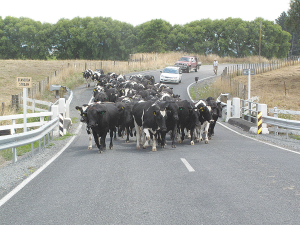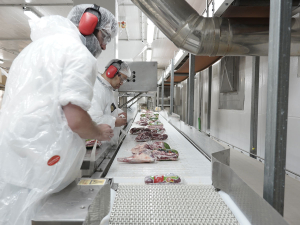In time for the new dairying year starting June 1, masses of cows and machinery are trucked around New Zealand as farm contractors relocate themselves and their stock.
“Farmers and contractors can prevent the spread of pest plants and weeds,” said Waikato Regional Council pest plants team leader Darion Embling.
“Unclean machinery is a confirmed pathway for the spread of infestations such as velvetleaf and alligator weed between some farms in our region. That makes machinery hygiene especially important with Gypsy Day coming up.”
Embling said machinery cleaning is essential before moving between properties.
“Any form of plant or soil contamination can harbour pests or weeds. Machinery should be cleaned so no visible soil or plant matter remains which might spread pests or weeds.”
Ideally, machinery wash down should occur on the property prior to movement, containing any problems at the source. Alternatively, machinery may be cleaned in a wash-down facility but taking care not to risk pest spread during trucking.
No green feed for stock
Stock must be stood off green feed before they’re transported to help keep roads clear of effluent and safe for users.
A cow’s daily combined effluent is about 52L and a truck effluent tank’s capacity is just 200L. It means the spillage of effluent onto roads is a real risk unless farmers in particular take some simple steps ahead of time.
The regional council recommends that farmers:
confirm stock pick-up times in advance to eliminate confusion
move stock close to the loading ramp the day before when possible
stand stock off green feed for a minimum of four hours (with water)
use dry feed before transport because it results in less effluent.
• More information is available at waikatoregion.govt.nz/biosecurity











